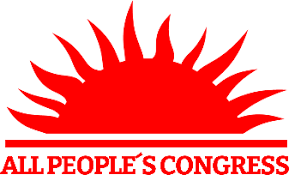Westminster for Democracy (WFD) with funds from the UK government engaged a ParlSONet, a network of Civil Society organizations in Parliament and representative Members of Parliament on a two days capacity building that spanned between 22nd and 23rd November this year on Public Debt and Public Finance Management at the Freetown City Council Multipurpose building, Wallace Johnson Street, Freetown.
According to the organizers , the two days capacity building was aim to bring key stakeholders in the public financial management of the country to share learning’s, best practices and challenges and further identified collaborative mechanisms to improve public service delivery and overall governance.
Head of Accountability- WFD UK, facilitated on Budget Process and the Public Debt Management Assessment Toolkits for Parliament with the motive of dishing out key knowledge on the public budget processes and understanding the standard tools used in the process and also share critical understanding of the Role of Parliament in the Oversight of Public Debt, Debt Decision – Making and Oversight in emergency contexts, challenges and applicable solutions.
Facilitating on Public Finance Management and Parliament, Director of the Parliamentary Budget Office, Ibrahim Jimissa introduced public financial management holistically but paid premium on the role of parliament in the said topic among other related areas.
Jimissa presentation also looked at the appropriation process, reforms, best practices and how parliament intend working with Civil Society Organizations (CSOs) in ensuring stronger public engagement in the process of public debt that will stimulate actions on a collaborative strategy on how CSOs can contribute to the appropriation process moving forward.
During a panel discussion on Public Financial Management, the role of the National Revenue Authority, Finance Ministry, Auditor General and Anti-Corruption Commission (ACC) were brought in to share their professional experiences on issues.
Despite the reforms in public financial management in the country, there are still outstanding challenges in generating sufficient revenue to support government expenditure coupled with perennial delay in budget implementation, corruption and leakages, transparency and accountability challenges. Addressing these challenges requires a better understanding of the process that the key institutions have made and continues challenges they face to see where CSOs collaboration needed at communities, districts, regional and national levels.
On day two, the country’s status on Debt Financing, Management and Transparency was also given consideration taking into account the COVID -19 pandemic that inflicted serious blow on the economy of the country.
The session introduced the concept of debt financing, management and transparency, thereby highlighting the reforms, successes and challenges with recommendations on how CSOs can support increasing debt transparency and accountability.
This is so because CSOs continues to raised concern about their limited participation and consultation in the budget and debt management process which in essence limit their space and influence in the whole process as there are instances and a strong appetite for bringing more CSOs into the process.
Owing to the fact that Sierra Leone’s economy grappling with the shock, the government instituted measures related to addressing debt risk ranging from conducting the annual national debt sustainability analysis with the singular motive of reviewing the medium term debt strategy and publication of debt statistics to increase the level of debt transparency and accountability.
Budget Advocacy Network (BAN), the lead Civil Society organization specialize in budget and budget related matters facilitated the session on Introduction to Budget Management and Analysis for CSOs with the motive of CSOs to have the capacity to identify gaps and bring forward recommendations for improvement.
The sprite behind the decision, there are several others CSOs working in other sectors like education, health, agriculture among others, that are not too familiar with national budgeting and management process.
Hence the reason why the session introduced the concept of budget management and analysis to enable CSOs to monitor the budget process, track expenditures in the sector they are working in, and analysis budget allocations.
Credit: Rescue Ship Foundation-SL Lungi PR Unit












